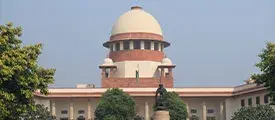Patent Litigation In India
The Patent Act of 1970 provides for the enforcement of patents by way of suits for infringement. Post-WTO TRIPS Agreement, various methods have however been adopted by legislators in India to improve patent enforcement measures. The TRIPS Agreement has introduced several domestic enforcement mechanisms in an attempt to overcome the shortcomings of pre-existing international IP laws.
The 2005 Amendment of the Patent Act was a significant breakthrough as it marked the beginning of a product patent regime in chemicals, food and drugs, and also some of the notable patent litigation between innovator companies and the Indian generic drug industry.
Civil Remedy
Civil remedies against patent infringement in India comprise of filing suit for injunctions in the appropriate court (lower courts or high courts)
A. Interim Injunctions
Interim injunctions are granted during the pendency of the case even before a full-fledged trial. This relief is granted by a summary procedure based on the admitted facts and by establishing:
1.a prima facie case where the burden of proof lies on the patentee to establish the patent violation. There are more chances of proving the prima facie case if the patent is sufficiently old; and
2.a balance of convenience in favour of the plaintiff as per the doctrine of relative hardships. The plaintiff would suffer irreparable loss if his/her prayer for a temporary injunction is not allowed. Usually, in patent infringement cases, an interim injunction is not normally granted before a full-fledged trial. It is a kind of norm that whenever the patentee files a suit for infringement, the defendant/infringer counter-claims for invalidity.
For example, in the case of Novartis AG v Mehar Pharma 2005 PTC 160 (para 28), as soon as the defendant counter-claims for invalidity it becomes difficult for the patentee to establish a prima facie case as a result of which the court does not grant any injunction against the defendant.
Under Indian law, there is no presumption of the validity of a recent patent. In the case of patents older than five years, the court may presume the validity of a patent. However, in the case of patents where a Certificate of Validity has been granted under s 130 of the IPA either by the High Court or by the Intellectual Property Appellate Board (IPAB), then the patentee can demand an interim injunction.
B. Permanent Injunctions
Permanent injunctions are granted after a full-fledged trial. In the event that the court concludes, after a full-fledged trial, that the plaintiff had unjustly obtained an interim injunction before trial, then the Court will direct the plaintiff to compensate the defendant for the losses that the defendant had suffered due to the subsistence of the injunction prior to the trial.
For more information on Patent Litigation in India please write to us at: info@ssrana.com
To Know More about Patents in India click on the link below:








